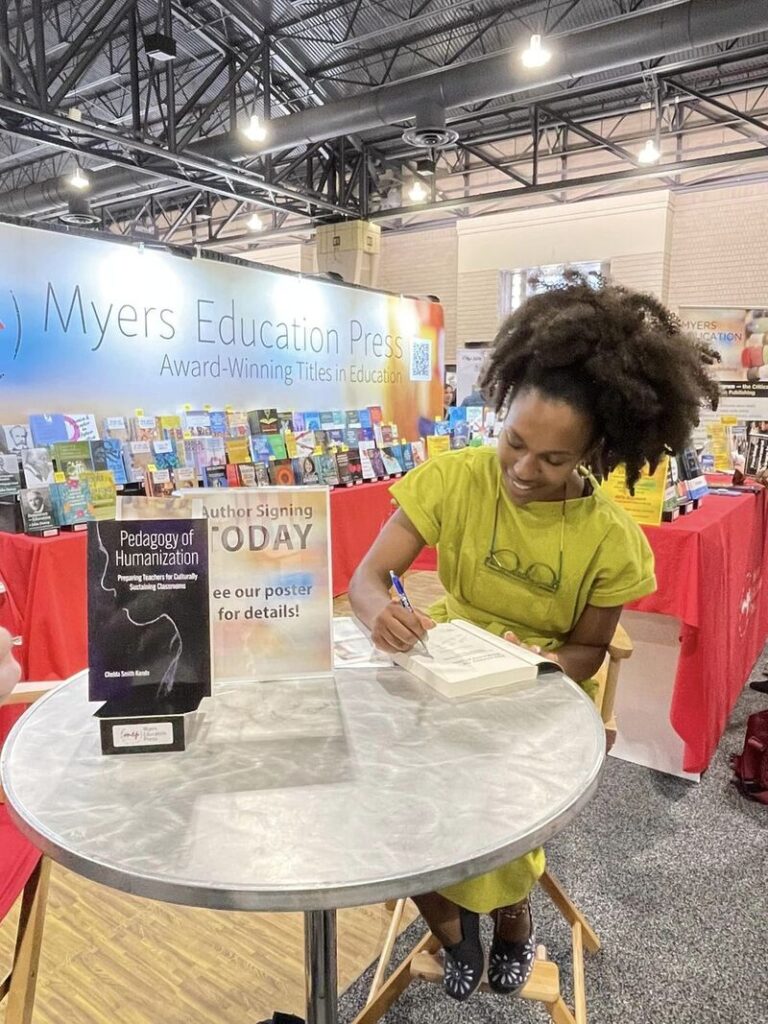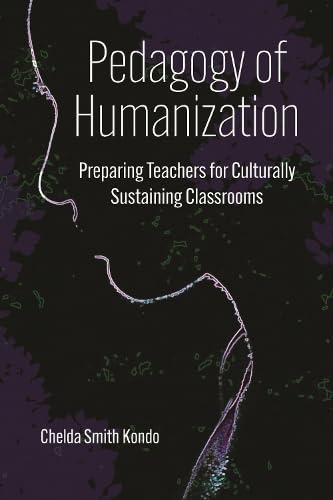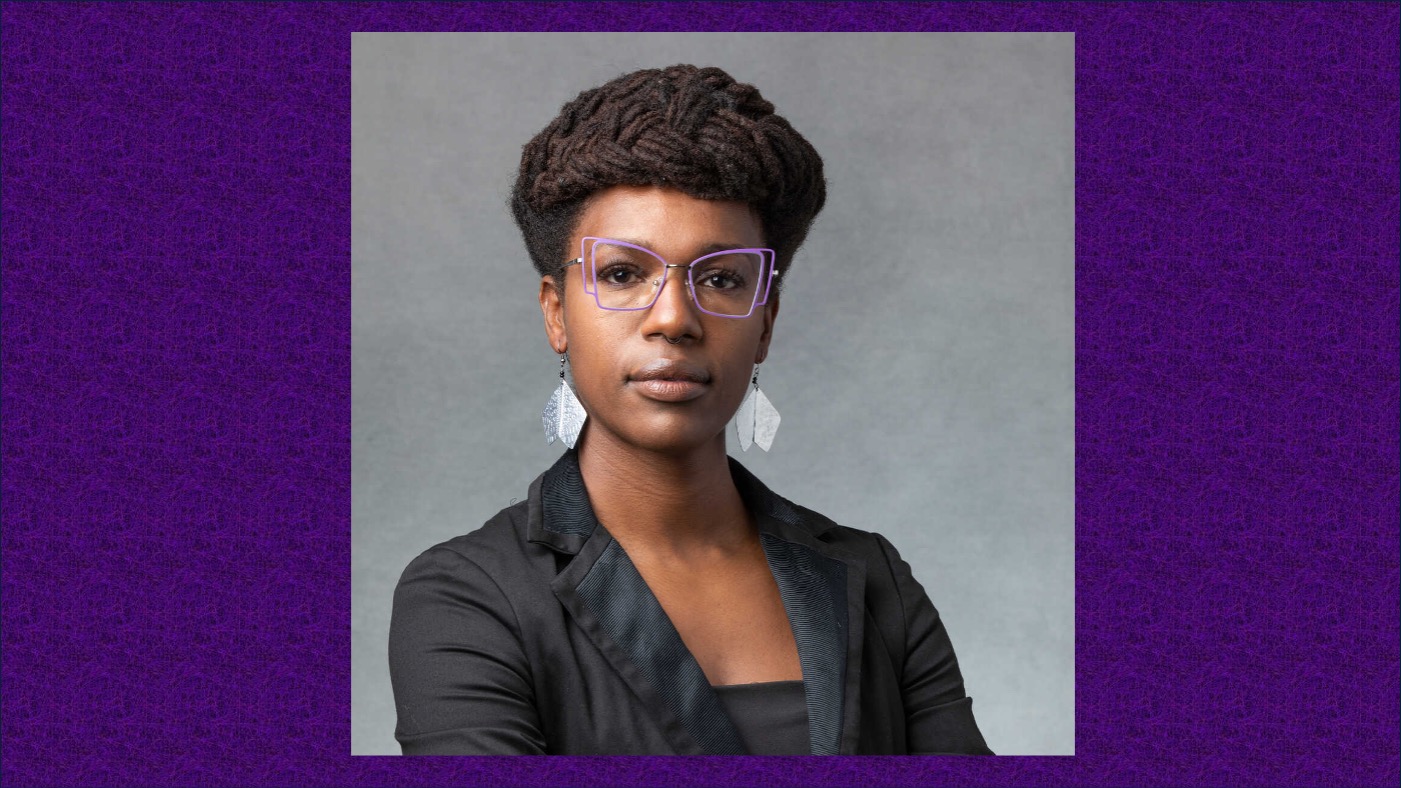
Dr. Chelda Smith Kondo chaired and facilitated five talks at the American Educational Research Association annual conference in Philadelphia in April. There, the associate professor of education at the University of St. Thomas also held the first book signing for her book Pedagogy of Humanization: Preparing Teachers for Culturally Sustaining Classrooms. The book was released in February 2024 by Myers Education Press.
Pedagogy of Humanization is the first book to bring together the practice (how) and theory (what and why) of inclusive and asset-based teaching. In this book, a group of teacher-educators across disciplines explore their personal and professional identities to reveal the potential for applying each tenet of culturally relevant pedagogy in their respective fields.
Kondo writes in the book’s preface:
“If you have ever walked into an elementary classroom and seen a child who is separated from their peers, that child usually has a distinguishable identity marker that society has deemed less worthy. Perhaps the child is a multilingual learner, is bigger than everyone else, has a visible skin condition, or has an observable physical disability. Regardless of the reason, that child’s experience of belonging has been compromised because of marginalization. A classroom that fosters critical consciousness would empower not only that child, but also the others in the classroom to notice when marginalization is occurring and then to counteract it.”

Since the book is filled with anecdotes, exercises, user-friendly theories and examples, readers will learn how teachers can humanize themselves to have the capacity to be effective teachers of children who have been dehumanized and underserved by traditional teaching and schooling.
The book’s purpose is to build a critical mass of educators who know how to employ the principles of critical pedagogy in elementary classrooms. This includes attention to the various knowledge, skills, and dispositions required of critical pedagogues in their curricula, instruction, assessment, classroom environment, and relationships.







